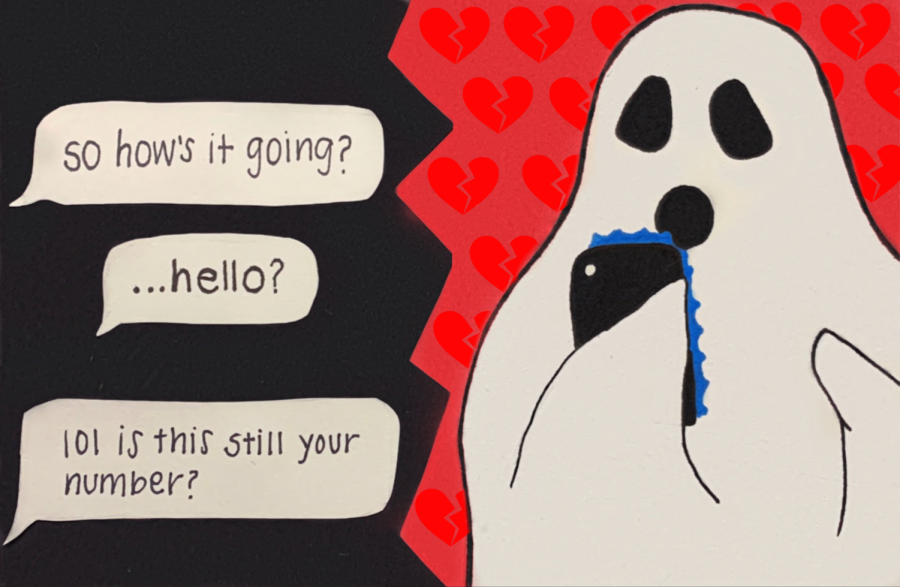Silent, not sweet
Ghosting haunts today’s social media generation
Ghosting cartoon by Meilani Bitanga.
March 28, 2020
One hour and still no sign. Two days and sadly no text. Three weeks and no phone call. From friends to romantic partners, ghosting has unfortunately become a common way to kill a relationship.
The term ghosting refers to the sudden collapse of all communication without explanation.
According to semanticscholar.org, 38.6 percent of people reported themselves as a victim of ghosting in a romantic relationship. Whereas, 23 percent of people reported themselves as a “ghostee” in an ex-friendship.
While the “ghoster” may have dodged an uncomfortable situation or potential drama, they have made no improvement in their conversation and relationship skills.
“The best way to end a relationship for all parties involved is for the person ending the relationship to explain their reasons for doing so to the other person,” said clinical psychologist Scott T. Wilson. “This shows the other person respect, helps them understand the situation, and if needed, can help them to address whatever the issue is that led to the end of the relationship.”
With the rise of technology, ghosting becomes easier as people found a way to avoid telling someone how they feel face-to-face.
Today, one can slide into a person’s DMs on Instagram or swipe right on Tinder for a date any time, all behind a screen. However, these actions and the associated social media apps have normalized ghosting. Somehow it’s become acceptable.
Additionally, Pew Research Center reported higher ghosting statistics in the 18 to 24 age demographic, where excessive social media use played a factor.
Whether tempted to ghost an unrequited love or guilty of already doing so, most will probably have a run-in with this “silent killer.” Though a ghoster may not leave with malicious intentions, their selfishness and cowardice can haunt a person.
While ghosting may seem like the easy way out, it ultimately reveals a person’s lack of maturity and inability to deal with emotions. In these situations, people should let the ghoster drift away peacefully.
“While it’s never the ideal way of handling a situation, it can be a necessary evil towards toxic people and a sense of escape for those who don’t do well with confrontation,” said senior Benvenuta Berberi. “Ideally, the right thing to do would be to express the reason for stopping communication, but then again, this isn’t an ideal world.”


